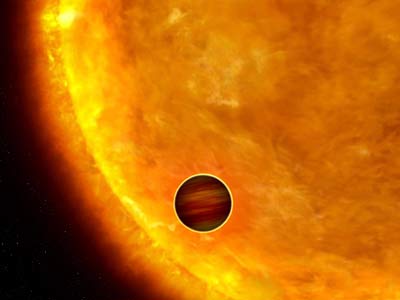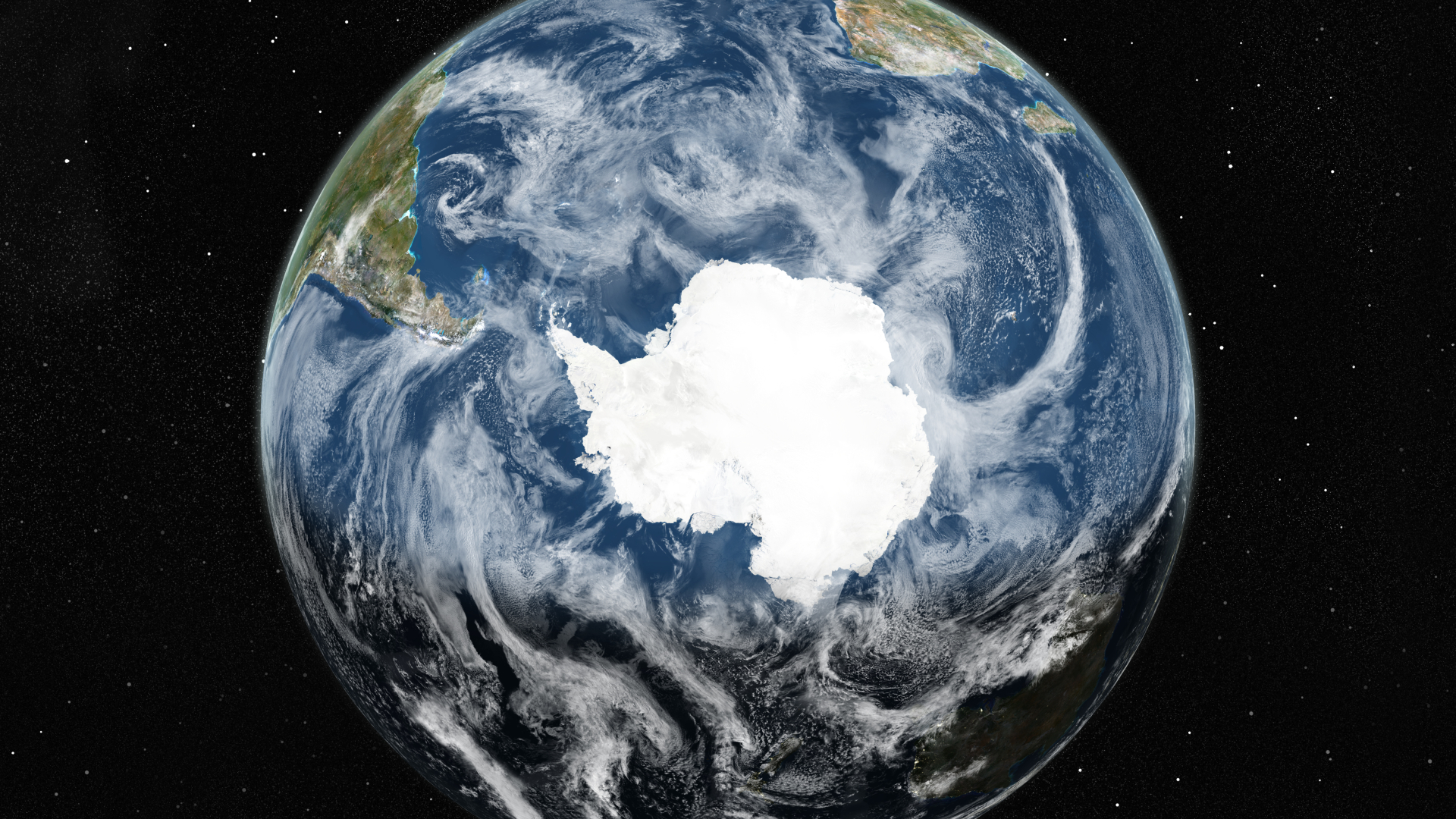Space Satellite Spots Its First Extrasolar Planet

A new European space probe has detected its first extrasolar planet, and astronomers say the satellite has the ability to find Earth-like worlds.
The COROT satellite, a joint project of France, Europe and Brazil, discovered a gas giant planet nearly twice the diameter of Jupiter orbiting a star 1,500 light-years away. The planet has been named COROT-Exo-1b. It circles a yellow dwarf star similar to our Sun every 1.5 days, so it is very close to the star and therefore very hot.
COROT, which launched in December, found the planet by noting the decrease in light from a parent star when the planet crosses in front of the star. This "transit method" has been used before, but the new space mission promises more frequent detections and the ability to spot smaller worlds.
"The data we are presenting today is still raw but exceptional," said Malcolm Fridlund, COROT Project Scientist for the European Space Agency. "It shows that the on-board systems are working better than expected in some cases-up to ten times the expectation before launch. This will have an enormous impact on the results of the mission."
The bottom line: Planets down to the size of Earth could be detected, and it might even be possible to probe the chemical composition of such a planet, according to a statement issued by mission officials.
A race of sorts is on.
NASA plans next year to launch the Kepler mission, a similar satellite also capable of discovery Earth-like worlds.
Breaking space news, the latest updates on rocket launches, skywatching events and more!
Astronomers have found about 230 planets beyond our own solar system. Last week a Swiss team announced the discovery of an Earth-like planet that could support liquid water, a key ingredient for life as we know it. It was found with a ground-based telescope.

Rob has been producing internet content since the mid-1990s. He was a writer, editor and Director of Site Operations at Space.com starting in 1999. He served as Managing Editor of LiveScience since its launch in 2004. He then oversaw news operations for the Space.com's then-parent company TechMediaNetwork's growing suite of technology, science and business news sites. Prior to joining the company, Rob was an editor at The Star-Ledger in New Jersey. He has a journalism degree from Humboldt State University in California, is an author and also writes for Medium.
